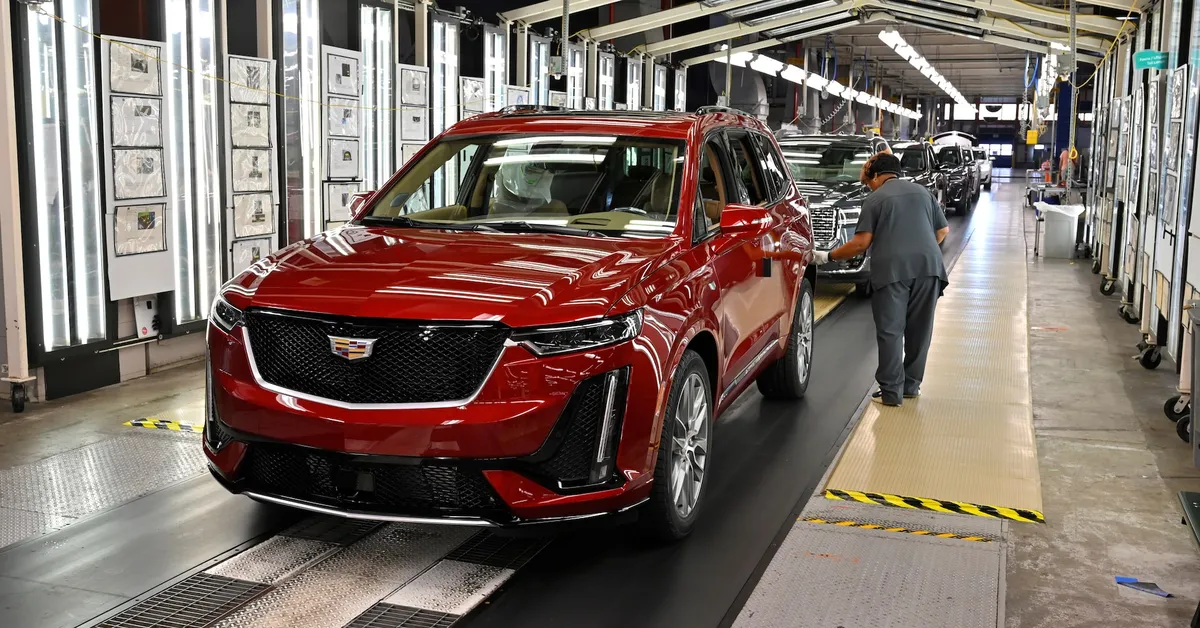
In a recent development, U.S. President Donald Trump is contemplating substantial tariff relief for the American automotive industry. This potential action could dramatically reduce the financial burden that major automotive companies currently face, according to Republican Senator Bernie Moreno and industry officials who spoke with Reuters. Moreno, a former car dealer and a member of the Senate Commerce Committee, is actively involved in automotive policy and oversight.
The news of possible tariff relief has positively impacted the stock market, with shares of major automakers experiencing significant increases. Notably, Ford's stock closed up by 3.7%, while Stellantis, the parent company of Chrysler, rose by 3.2%, and General Motors (GM) saw an increase of 1.3%.
If the extended tariff relief becomes official, it would provide automakers with a stronger incentive to relocate their vehicle production to the United States. This aligns with one of Trump's core policies aimed at boosting job creation for American workers. The Commerce Department had previously announced plans in June to implement an import adjustment offset of 3.75% of the suggested retail price for eligible vehicles assembled in the U.S. This offset is expected to remain in effect until April 2026, followed by a reduced rate of 2.5% in the second year to counterbalance tariffs on imported auto parts.
Trump is reportedly considering maintaining the offset at 3.75% and extending the duration of this credit to five years. Additionally, there are discussions about expanding the offset to include U.S. engine production, according to Moreno and other automotive officials. Moreno expressed optimism that Trump would make a definitive decision soon, emphasizing the creation of an incentive system that differentiates between importers and manufacturers based in America.
Moreno strongly believes that automakers who conduct significant final assembly within the United States should benefit from tariff breaks. He stated, "Look, at the end of the day, they're doing exactly what we want them to do — paying employees in America well and performing final assembly in the United States with the cars they sell here."
In response to inquiries regarding the proposed tariff relief, a White House official highlighted the administration's commitment to a multifaceted approach aimed at securing domestic auto and auto parts production. However, they cautioned that any discussion regarding the administration's policymaking remains speculative until official actions are signed by the president.
In May, Trump implemented a 25% auto tariff on over $460 billion worth of imported vehicles and auto parts annually. However, he has subsequently negotiated deals to reduce these tariffs with several countries, including Japan, the United Kingdom, and the European Union. Moreover, in August, the Commerce Department announced an increase in steel and aluminum tariffs on more than 400 products, including many essential auto parts, which amount to $240 billion in annual imports. These parts encompass automotive exhaust systems, electrical steel necessary for electric vehicles, and components for buses.
The automakers have not yet responded to requests for comments regarding this potential tariff relief. A lingering question remains whether automakers will be able to apply the relief to mitigate the impacts of existing aluminum and steel tariffs. Additionally, the Trump administration has postponed finalizing new tariffs on heavy-duty trucks, which were scheduled to take effect this week, as they evaluate the extent of potential 25% levies.